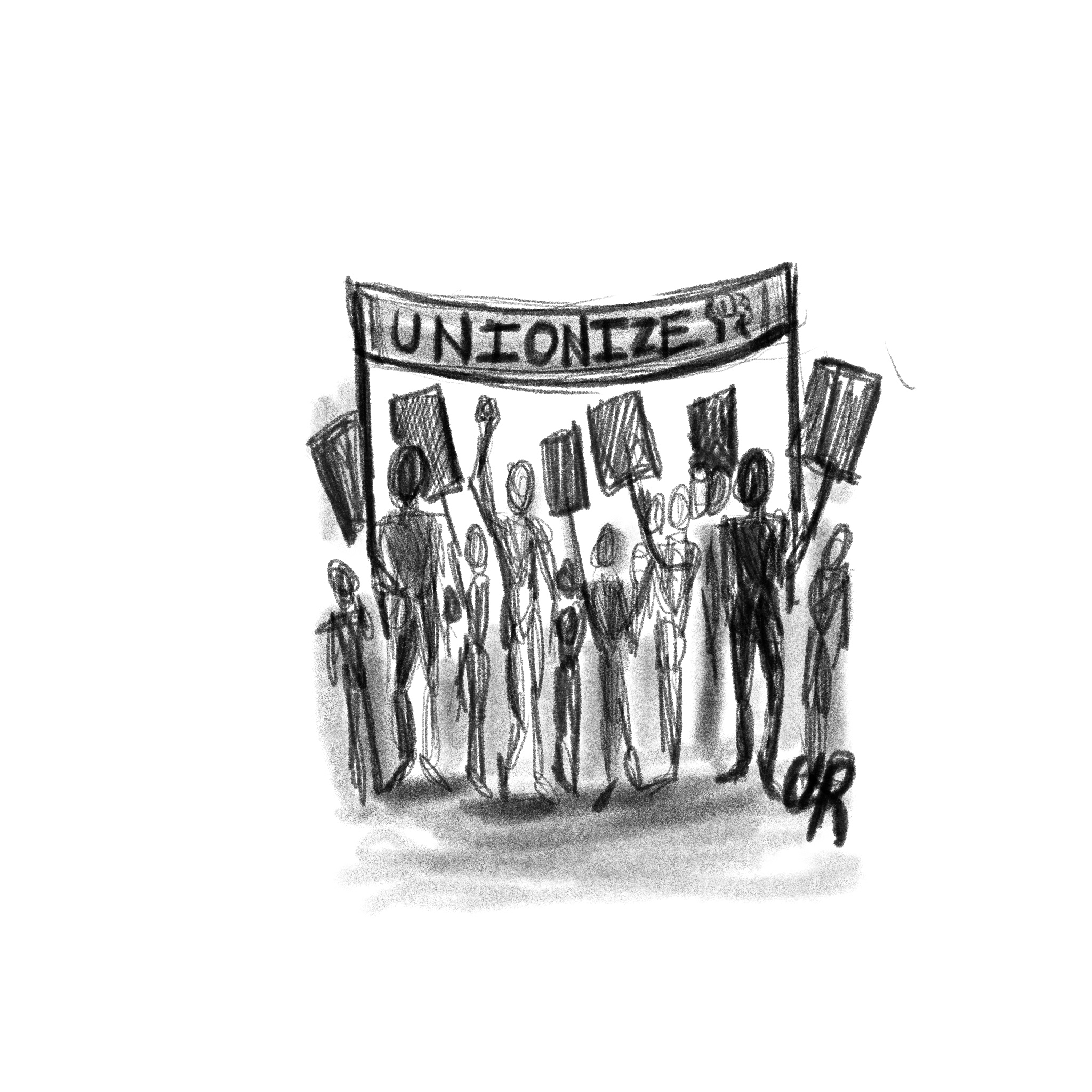State of the union(s): a look at labor in 2023 and beyond
September 8, 2023
 This
piece represents the opinion of the author
.
This
piece represents the opinion of the author
.
 Lauren Russler
Lauren RusslerNext Thursday, 146,000 autoworkers in the United Auto Workers (UAW) union will be authorized to go on strike if they are unable to reach a satisfactory agreement with Detroit automakers Ford, General Motors and Stellantis. On August 25, the strike was authorized by a vote of 97 percent in favor, signaling significant solidarity among autoworkers ahead of a walkout that could seriously impact an industry that comprises three percent of the United States GDP. The UAW’s President, Shawn Fain, was elected in March of this year on a platform that promised a more radical approach to negotiating with automaker executives. The union’s demands clearly reflect this transition in attitude and leadership. According to ABC reporting, the UAW’s demands include “a four-day work week at full-time pay, a 46 percent wage increase and a share of company profits”—to which automakers have responded dismissively. After months of negotiation, and with less than a week left on the table, a satisfying contract is far from resolution, according to a statement Fain made on Monday.
2023 has seen a rapid rise in labor action, culminating in this year’s “hot labor summer,” in which workers from myriad sectors have fought for improved wages and working conditions in the wake of a highly unequal post-Covid economic recovery. At the same time that companies like Amazon were making record profits, average wages failed to keep up with a rising cost of living across the country. The demands being made are long overdue. With the federal minimum wage still at a paltry $7.25/hour, it’s clear that corporate donations have crippled any serious government policy against rising economic inequality.
I believe that expanding the realm of political conflict beyond the ballot box and into the workplace offers the best means for constructing a fairer economy and society at large. Thankfully, the size and variety of labor actions within the last few months seem to point towards this expansion of political activism.
In August, 340,000 UPS workers threatened a strike and won a new contract that raised wages, ended forced overtime and promised air conditioning in trucks that can reach temperatures of 120 degrees, especially in this summer’s record heat. The Writers Guild of America and the Screen Actors Guild have maintained their strikes against Hollywood’s executives for months, including one executive who said they would wait out the union’s demand until “members start losing their apartments and losing their houses.” Southwest pilots voted to authorize a strike by a 99 percent margin in May, while flight attendants working for American Airlines did the same by a 99 percent margin two weeks ago. Two weeks ago, and less than ten miles from Bowdoin’s campus, Bath Iron Works narrowly avoided a strike after reaching an improved contract with Local S6 of the Shipbuilders’ Union.
These actions are part of one of the most significant periods of labor agitation since the 1980s, when the Reagan administration’s anti-union policies combined with trends like factory offshoring and automation crippled manufacturing unions that formed the base of the U.S. labor movement. After these neoliberal reforms, new jobs in the growing service and technology industries managed to largely ward off unionization efforts for decades. That’s why the strength of recent unionization campaigns among Starbucks and Amazon workers are encouraging, especially in the face of union-busting efforts for which both companies have been found guilty in federal court.
For decades, CEOs have relied on the precarity of their lowest-paid employees to ensure they would not strike. Now, emboldened by a tight labor market and record inflation, many workers are concluding they have more to gain than lose by walking out.
As individual employees continue to organize, the next step for the labor movement involves individual unions’ ability to work with each other and see their fates as united in a larger struggle. In an interview on Wednesday, Fain argued that beyond its significance for UAW workers, a strike would force Joe Biden to pick a side on organized labor nationwide: “Either you stand for a billionaire class where everybody else gets left behind, or you stand for the working class.” Time will tell whether our self-described “most pro-union President in American history” will put his money where his mouth is.
Fortunately, we don’t have to wait for any politician in order to take the lead on labor issues ourselves. Donating to strike funds and boycotting firms that reject union demands are the best way to tilt the financial scales in favor of organized labor. Even just educating yourself on labor issues and history or starting a conversation about these issues at the dinner table can be great ways to do a small part in fostering a pro-labor political climate. Everyone should be able to get behind treating all workers with dignity and compensating them fairly, and these demands are only the first step towards a society emancipated from the insecurity and indignity of capitalist wage labor.
Jason Olaru-Hagen is a member of the Class of 2025.

Comments
Before submitting a comment, please review our comment policy. Some key points from the policy: